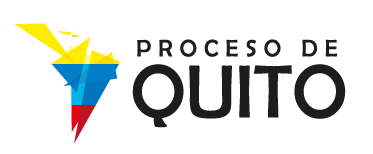Asylum
ASYLUM
With the support of:
5.5 million Venezuelans have left their homes and fled, fundamentally, to Latin America and the Caribbean. The current situation in Venezuela represents the largest exodus in the region’s re-cent history and one of the world’s largest displacement crisis. Almost 80% of this displaced population is in Latin America and the Caribbean. If the current trend continues, this figure could reach 6.5 million people by the end of 2020, worldwide. In 2018, an average of 5,000 people left Venezuela each day. Thousands of them cross the Venezuela-Colombia border every day, while others go to Brazil, Chile, Ecuador or Peru; also, there are those who undertake risky travels by boat to the Caribbe-an islands.
Within the framework of the Global Compact on Refugees, the Global Refugee Forum and the Quality Asylum Program of the Brazil Plan of Action, work is being carried out to support the strengthening of the capacity for asylum and refuge within the member countries of the Quito Process.
At the IV International Technical Meeting on Human Mobility of Venezuelan Nationals, held in July of 2019 in Buenos Aires, the project profile entitled "Strengthening the National Systems for Refugee Status Determination" was approved, as part of the "Buenos Aires Chapter Roadmap". The purpose of this project profile is to provide a general framework with general guidelines for the development of cooperation projects, given that the National Commissions for Refugees (NCFRMIs) face similar challenges and needs.
During the September 2019 technical meeting, also held in Buenos Aires, the Technical Work Group, led by UNHCR, made progress in the development of technical specifications for national projects, as well as in the financial estimate required for the projects’ implementation.
Finally, at the Bogota Chapter, held in November of 2019, the countries that adopted the “Joint Declaration of the V International Technical Meeting on Human Mobility of Venezuelan Citizens in the Region” made a call so that each State, according to its capacities and internal legislation, may accept and implement the recommendations agreed in Buenos Aires regarding the “strengthening of national systems of refugee status determination and NCFRMIs, in accordance to each national capacity.”
Likewise, Argentina, Brazil, Ecuador and Mexico presented the guidelines for their national strengthening projects, while UNHCR presented the guidelines for regional initiatives and pro-jects that were addressed within the framework of Round VI of the 2020 Quito Process.
It is worth highlighting the effort the countries have put forth to safeguard the institution of asy-lum and refuge, separating it from matters related to migration, as well as the countries’ interest and proactivity in the facilitation and integration measures of the people. This interest was also shown in the adequacy of the processes through the design and implementation of technologi-cal platforms, as well as the concern for the situation of children and adolescents without documentation.
AREAS OF WORK





